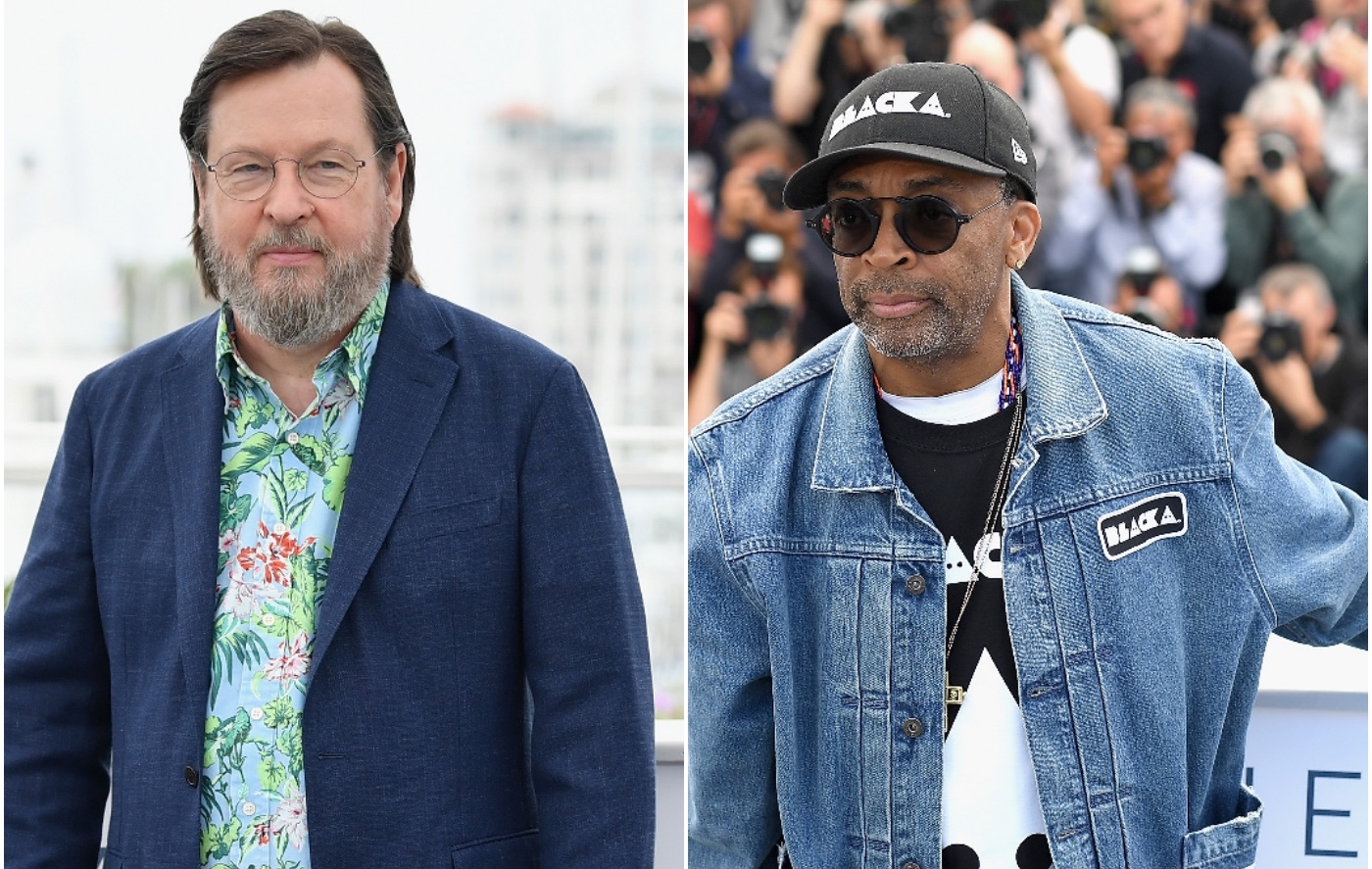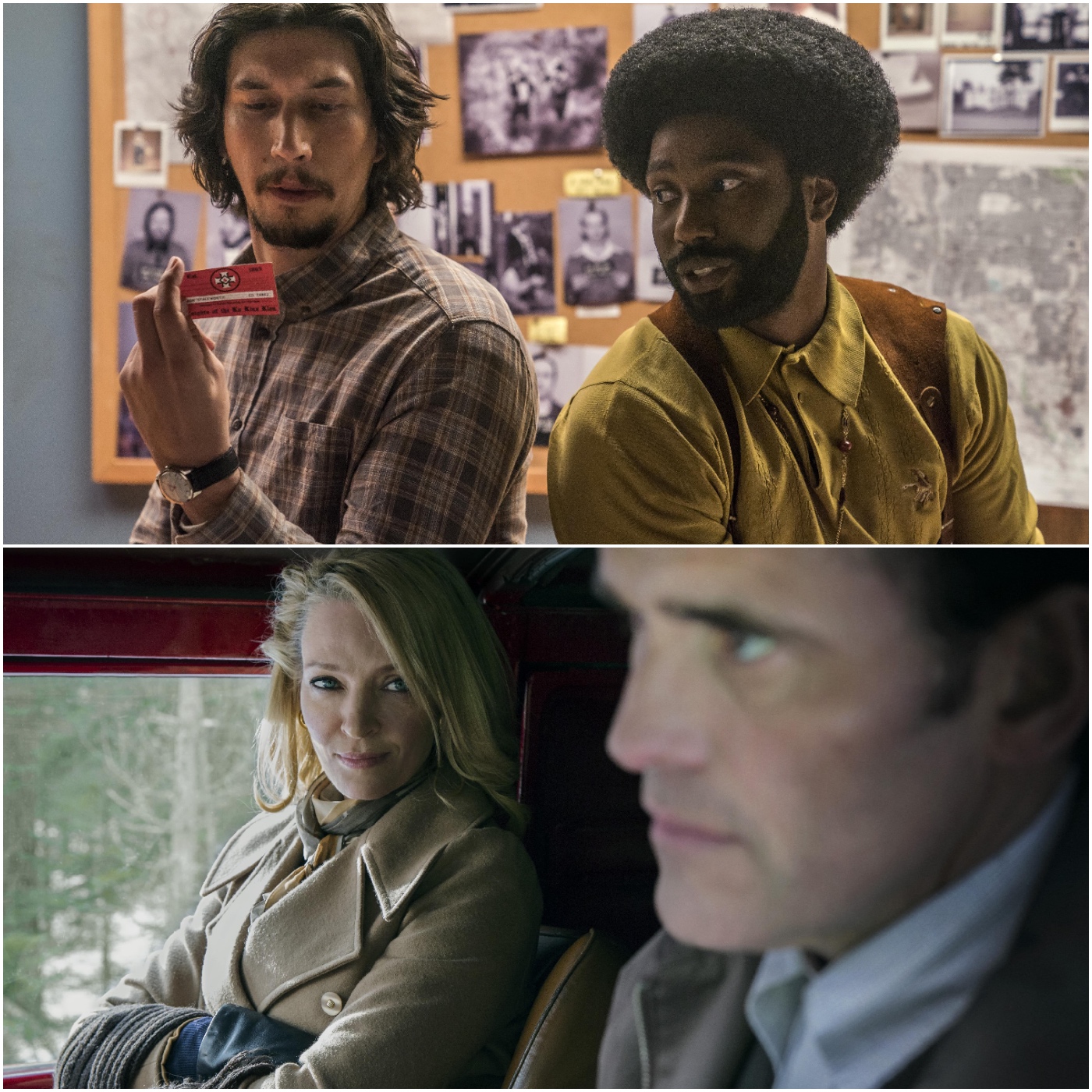
- Festivals
Lars Von Trier and Spike Lee Roil the Croisette
Things have (thankfully) finally been stirring on the Croisette after a rather lukewarm start to the festival here with a couple of high profile movies hitting the big screen of the Grand Theatre Lumière.
One is by perennial controversial Danish director Lars Von Trier (Antichrist, Melancholia) just back from a years-long time-out for bad behavior . The ex-Dogma bad boy is here with The House That Jack Built featuring Matt Dillon as the titular character, being escorted to his new domicile in the nether rungs of hell by a world-weary Virgil (Bruno Ganz). On his Dante-like descent Jack gives “Verge” an overview of his career as a serial killer, all the while debating the morals of life, art and sin. As you might imagine that makes for quite the gory tale which is strangely offset by Dillon’s earnest, kind of likeable quality: all in all an original entry in film’s serial rogues gallery.
This being a Von Trier film, the artistic accomplishment and accomplished directing come with shades of sadism, and before the credits finished rolling debates were erupting in the aisles between sharply divided supporters and detractors of the film (and even more of the man) – presumably exactly what Monsieur Frémeaux and the selection committee expected when they decided to program the film (out of competition).
The other sensation of the festival’s second week has been Spike Lee’s BlacKkKlansman. The true story of undercover cop Ron Stallworth, the first black policeman recruited by the Colorado Springs PD in the early seventies, who improbably infiltrates the KKK, was pitched to the Spike Lee by Jordan Peele. The director jumped at the chance of telling a story which he saw as relevant to current politics and the backsliding in race relations.

Adam Driver and John David Washington in BlacKkKlansman, Uma Thurman and Matt Dillon in The House That Jack Built .
courtesy cannes film festival
In the film John David Washington plays Stallworth , a detective in the department’s counter intelligence unit, who cold-calls the local chapter of the Ku Klux Klan. While befriending the local racist leader on the phone, for obvious reasons his white partner Flip (Adam Driver) is enlisted for the face-to-face meetings with the group of racists preparing hate crimes.
Lee’s film, which at times recalls the satirical parody of Peele’s Get Out and mixes period set pieces, classic film clips and contemporary news archive, plays like a remix of the national psyche on issues of race. There are scenes of romanticized notions of the Civil War from Gone With The Wind and the stereotyped propaganda of Birth of a Nation, a recreated speech by Kwame Ture (Stokely Carmichael) to an audience of black student activists and an extended cameo by Harry Belafonte (91) as an eyewitness to a lynching which he relates in detail while sitting on the same rattan throne made famous by Huey P Newton. Lee also openly homages Blaxploitation as he mocks and agitates in what amounts to an extended anti-racist tract – and an openly anti-Trump piece of agitprop.
“This film to me is a wake up call,” the director told journalists in Cannes. “Because we’re goin’ round going ‘okey dokey’, walking around in a daze and stuff is happening and it’s topsy turvy. And fake is been trumpeted as a truth”. That statement was part of a press conference almost as rollicking as the film itself, in which Lee openly attacked the current president as a standard bearer for the racism denounced in the film. Excusing himself for using “some profanities” Spike proceeded to lay down a barrage of “F” and “MF” bombs that would have softened a battalion of sailors, explaining in particular his decision top end the film with actual footage of the supremacist attack in Charlottesville which last year resulted in the murder of anti racist demonstrator Heather Heyer.
“I saw what happened and right away I knew this had to be the coda for the film but I had to do something first. I was given the number of the mother of Heather who was murdered when hat car came crashing down the street and I was not going to put that murder scene in the film without her blessing.. (She) said ‘Spike I give you permission to put that up’. So once I got permission I said: (…) that (**) scene is staying in the (**) movie! Cause that was a murder and we have a guy in the White House – I’m not gonna say his (**) name – whose defining moment – it was not just for the US, but for the world – and that (**) was given a chance to say we’re about love and not hate and that (**) did not denounce the (**) Klan and the Alt Right and those Nazi (**)’s. (….) We look to our leaders to give us direction, to make moral decisions and I like to say this not something that pertains only to the USA. This bullshit is going on all over the world. This right-wing bullshit is not just in America but all over the world., And we have to wake up. And we can’t be silent. Its not a black, white, brown…it’s everybody. We all live on this planet and this guy in the WH has the nuclear code. I go to bed every night thinking about it.”,
On of the characters in the film is David Duke a KKK Grand Wizard and supremacist (played by Topher Grace) who in Charlottesville endorsed Donald Trump as an icon of segregationists. “This story takes place in an unspecified time in the early 70’s” Lee continued. “Our job as film makers and storytellers was to connect this period piece to the present day. What’s happening now did not just pop up out of thin air., We had to connect what happened in early 70’s during Vietnam. (…) This film will be seen not only in US but will be seen all over the word. And like a I said there’s right wing stuff happening all over the place – so I do hoe people from other countries will see this this happening here, I hope that is film shakes people from their slumber,. We have to be cognizant, we can’t be complacent and let wrongs stuff slide. When you see wrong staring you straight in the face and you don’t speak up, you (are) just helping the other people.”
And with that Cannes truly felt as politically relevant as it did 50 years ago in 1968.

